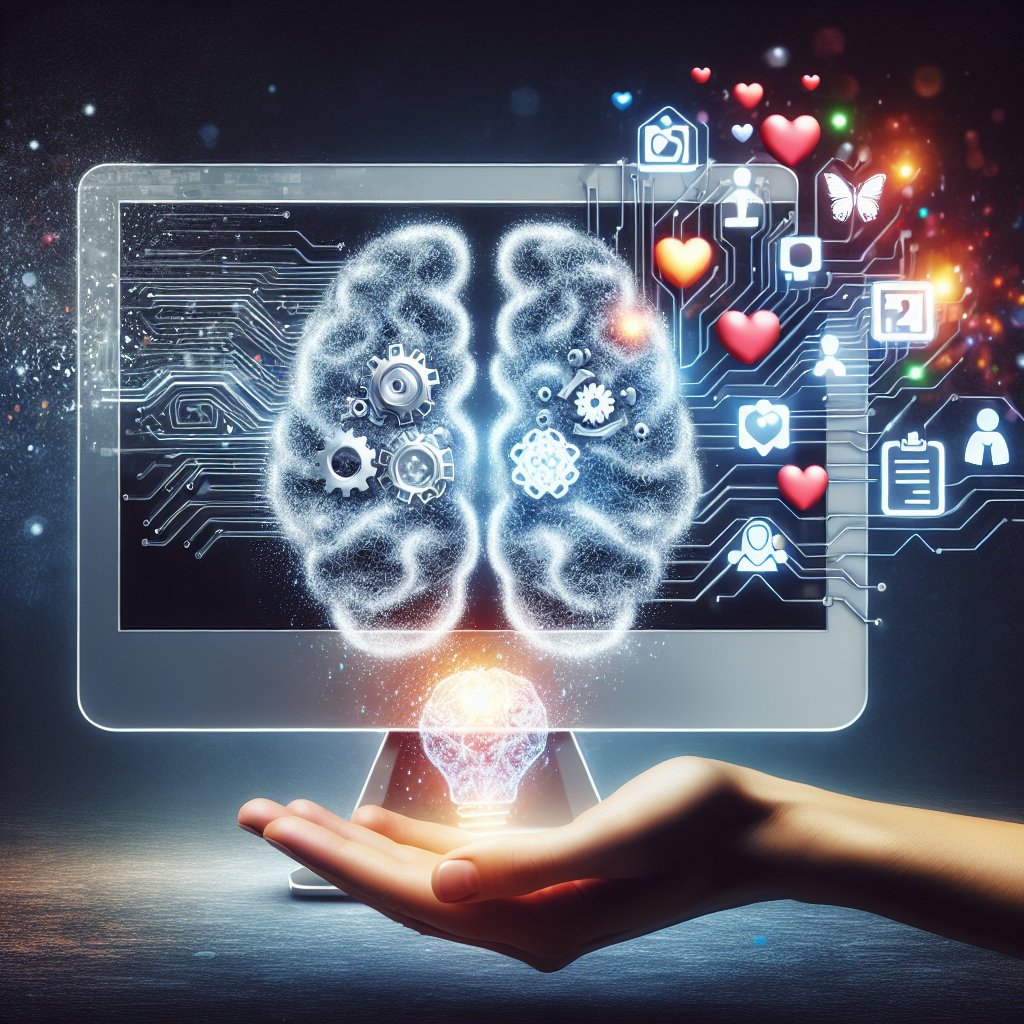Artificial intelligence (AI) has revolutionized many areas of healthcare, including mental health diagnosis and treatment. AI has the potential to greatly enhance the accuracy and efficiency of diagnosing mental health disorders, as well as improve the effectiveness of treatment methods. In this article, we will explore the impact of AI on mental health diagnosis and treatment, and how this technology is changing the landscape of mental healthcare.
Diagnosis
One of the major benefits of AI in mental health diagnosis is its ability to analyze large amounts of data quickly and accurately. AI algorithms can process information from various sources, including electronic health records, patient surveys, and even social media data, to identify patterns and predict potential mental health issues. This can help healthcare providers make more informed decisions about a patient’s diagnosis and treatment plan.
AI can also assist in the early detection of mental health disorders. By analyzing speech patterns, facial expressions, and other behavioral cues, AI can help identify symptoms of mental health disorders before they become severe. This early intervention can lead to better outcomes for patients and reduce the overall burden on the healthcare system.
Treatment
In addition to diagnosis, AI is also being used to improve the effectiveness of mental health treatment. One of the most promising applications of AI in mental healthcare is personalized treatment plans. By analyzing a patient’s unique characteristics and treatment history, AI algorithms can recommend the most effective treatment options for that individual. This personalized approach can lead to better outcomes and reduce the trial-and-error process often associated with mental health treatment.
AI is also being used to develop new treatment methods for mental health disorders. For example, virtual reality therapy, which uses AI algorithms to create immersive and interactive environments for patients to practice coping strategies and overcome fears, has shown promising results in treating conditions such as phobias and post-traumatic stress disorder.
Challenges
While the potential benefits of AI in mental health diagnosis and treatment are significant, there are also challenges that need to be addressed. One of the main concerns is the ethical implications of using AI in mental healthcare. For example, there are concerns about patient privacy and data security, as well as the potential for bias in AI algorithms.
Another challenge is the need for healthcare providers to be trained in using AI tools effectively. While AI can greatly enhance the accuracy and efficiency of mental health diagnosis and treatment, it is important for healthcare providers to understand how to use these tools appropriately and interpret the results in the context of each patient’s unique circumstances.
FAQs
Q: Can AI replace human therapists?
A: While AI can assist in mental health diagnosis and treatment, it is unlikely to replace human therapists altogether. The human element of therapy, including empathy, understanding, and emotional support, cannot be replicated by AI. Instead, AI can be used as a tool to enhance the effectiveness of therapy and improve outcomes for patients.
Q: Is AI biased in diagnosing mental health disorders?
A: AI algorithms can be biased if they are trained on biased data. It is important for developers to address bias in AI algorithms by ensuring that training data is diverse and representative of the population. Healthcare providers should also be aware of the potential for bias in AI tools and interpret the results with caution.
Q: How can patients benefit from AI in mental health diagnosis and treatment?
A: Patients can benefit from AI in mental health diagnosis and treatment by receiving more accurate and personalized care. AI can help identify symptoms early, recommend effective treatment options, and track progress over time. This can lead to better outcomes for patients and improve the overall quality of mental healthcare.
In conclusion, AI has the potential to greatly impact mental health diagnosis and treatment in a positive way. By enhancing the accuracy and efficiency of diagnosis, improving the effectiveness of treatment methods, and providing personalized care, AI can help address the growing mental health crisis and improve outcomes for patients. However, it is important for developers, healthcare providers, and patients to be aware of the challenges and ethical considerations associated with using AI in mental healthcare. With careful consideration and responsible use, AI has the potential to revolutionize the field of mental health and provide better care for those in need.

